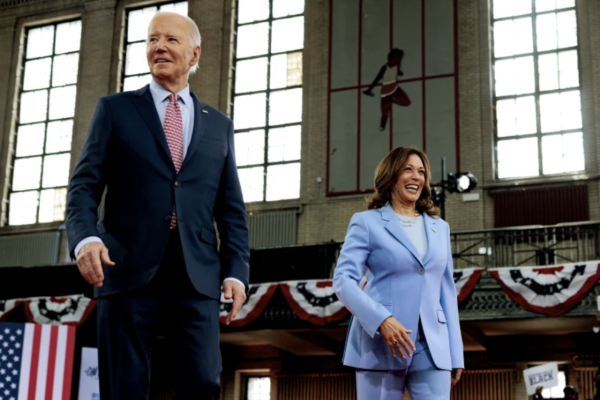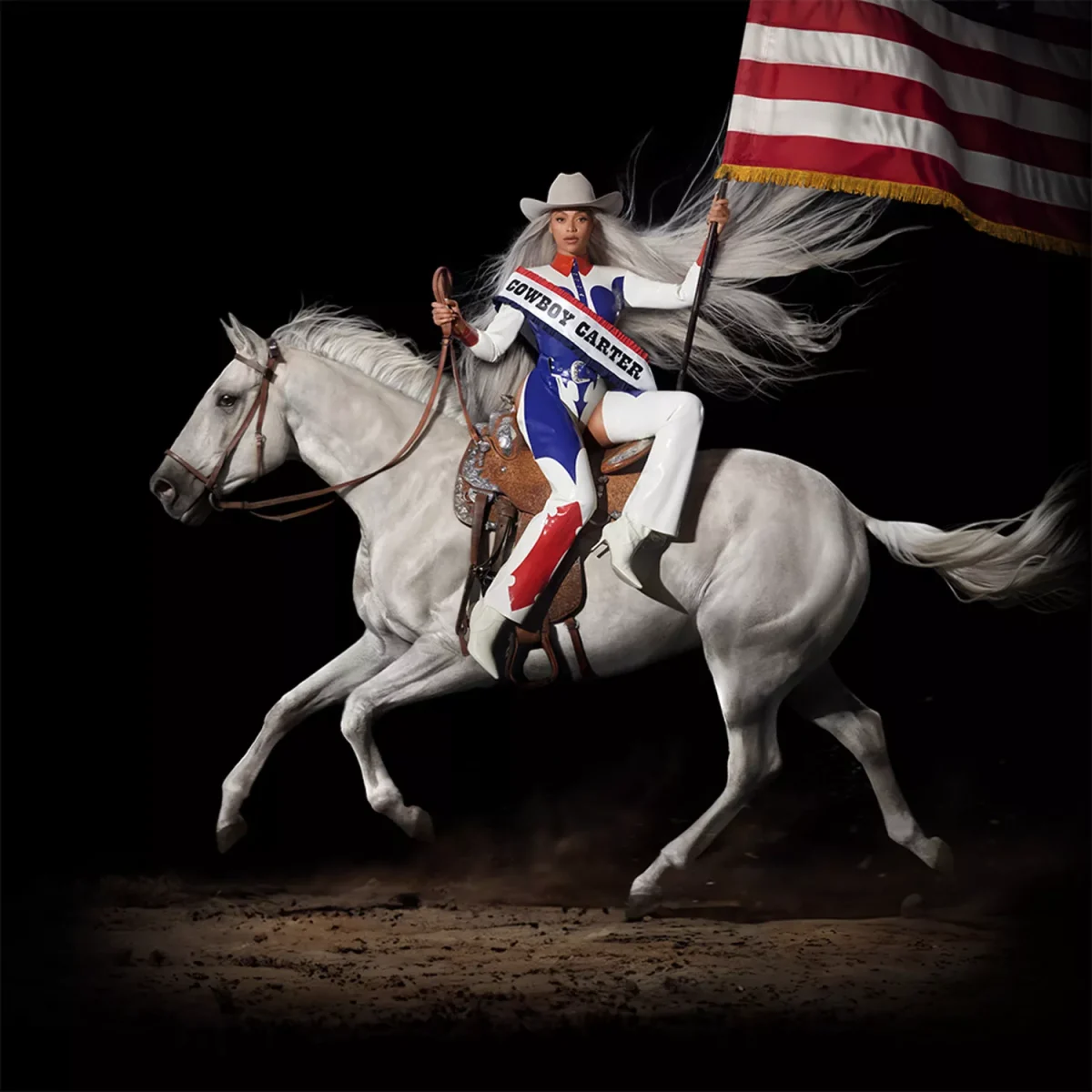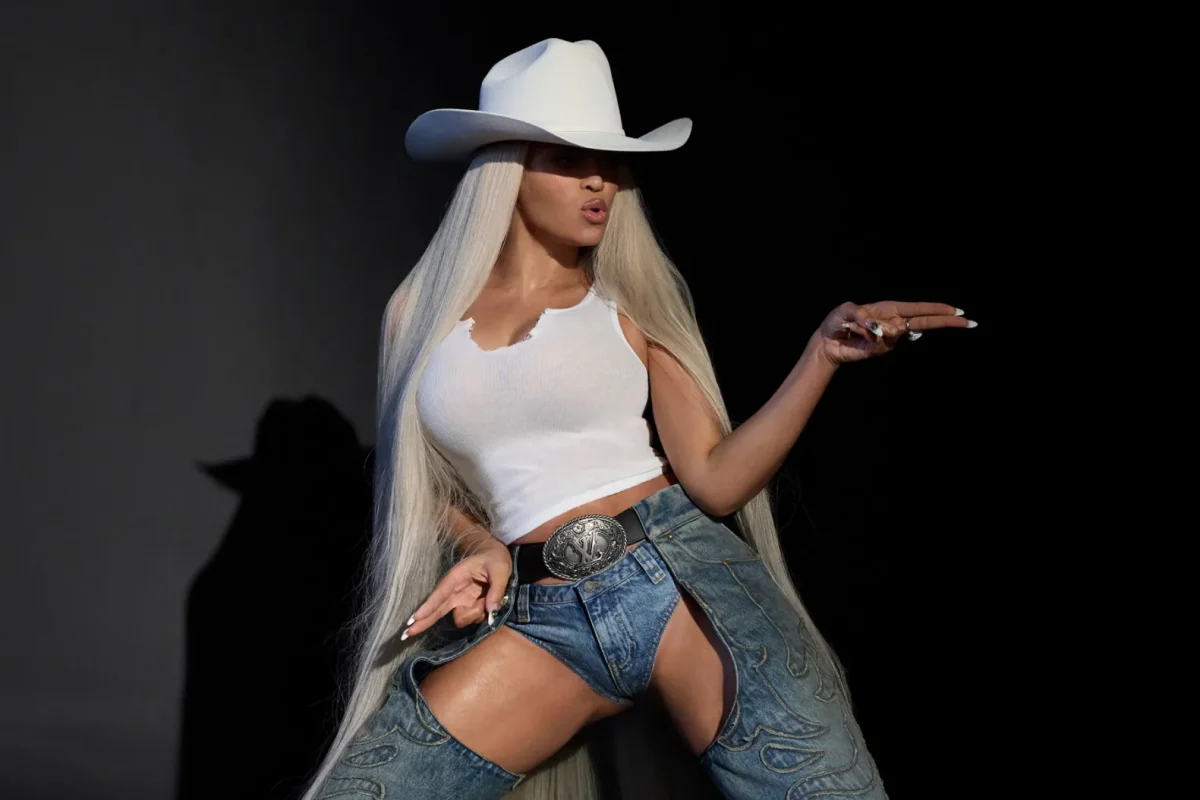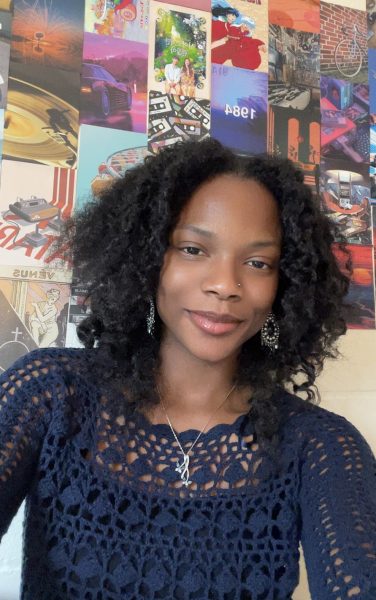Through her highly anticipated album “COWBOY CARTER,” Beyoncé has once again made waves on what it means to be an artist in 2024 and our perspective on what it truly means to be an American. The album serves as the second act following “RENAISSANCE” in a trilogy of albums. Following a similar theme, “COWBOY CARTER” is an invitation to revisit the past and our legacy, a call back home.
This theme is further emphasized with the opening track titled “AMERIICAN REQUIEM,” which contains sweet harmonic melodies blending into each other. The word “requiem” here is an act or token of remembrance. In short, it’s a remembrance of what it means to be American. Lyrics like “Hello my friend, you changed your name but not the way you play pretend” are said with a wispy soft voice that draws you in. This is a direct reference to the history of country music, which was first pioneered by southern black musicians and has slowly become a predominately white genre. Through the song, Beyoncé implies that although it has been a while since black artists were in country music, but hints their impact remains within the genre. “AMERIICAN REQUIEM” is the perfect opening song as it not only gives hints of what the rest of the album looks like, but also contains a mixture of pop, R&B, and hip-hop. It portrays that “COWBOY CARTER” is more than just a country album but a Beyoncé album.
Narrated by country music legend and pioneer Linda Martell, the album includes a mix of classics like “JOLENE,” “BLACKBIIRD,” and the sample from “These Boots Are Made for Walkin'” by Nancy Sinatra. The continued reference to the past makes the album feel simultaneously nostalgic and new. It creates a deja vu effect that leaves you questioning whether you truly know these classics. By reimagining each song’s layout, Beyoncé pays homage to those who have come before her.
“BLACKBIIRD” also reminds us of past struggles, specifically the civil rights movement. Having been created by John Lennon and Paul McCartney, the song inspires young black girls to have faith and keep fighting against segregation. In a 2018 GQ interview, Paul McCartney stated that “Blackbird” was slang for “Black Girl” and hoped that this song would provide black Americans with strength. Incorporated within the track are other major black women country artists: Tanner Adell, Brittney Spencer, Tiera Kennedy, and Reyna Roberts, which creates a symbolic reference to the title name and portrays that there is still black influence in the genre.
With country music so intertwined with American history, the album serves as a commentary that American history is also black history, no matter how much time has passed. This firmly reclaims that Americanism does not equal whiteness and that every American citizen has rights to this country, no matter their racial/ethnic background.
Further into the album, Beyoncé takes time to remind us that she is not to be played with both vocally and physically. In “DAUGHTER,” Beyoncé sings, “your body laid out on these filthy floors, the bloodstain on my costume couture,” referencing fighting with somebody. She goes on to describe although she may not appear tough, she doesn’t mind fighting and getting dirty when needed. The graphic lyrics are partnered with the most beautiful rendition of an aria from “Cara Mio Bien.” This fusion of genres allows us to see her vocal talent’s depth and ability to blend genres seamlessly. This indicates that as an artist, she is not confined to just one genre and can do as she pleases. This serves as a clapback to the critique that Beyoncé is not a country artist.
It is further emphasized in the following RNB and hip-hop track “SPAGHETTII,” where Linda Martel narrates that, in practice, some artists can feel confined to a genre. This track also portrays to other musicians that while you can feel stuck in your genre, you don’t have to be. It encourages them to take a leap of faith and step outside their comfort zone. This also reconnects the listeners to the essence of the fact that music is limitless and holds no boundaries.
With so many hints and clues, Beyoncé created not only an album but also a piece of art that is both timeless and personal. Each time it is revisited, new meanings, interpretations and feelings will surface on what the world looks like for music and for the nation. One thing that is indeed confirmed is that its commentaries and impact will undoubtedly go down in history.



























